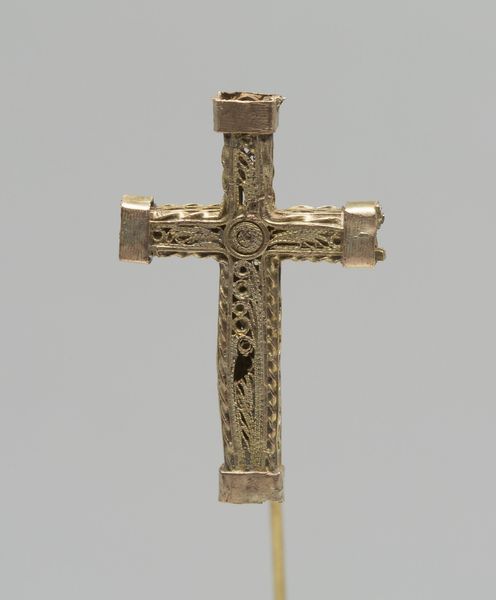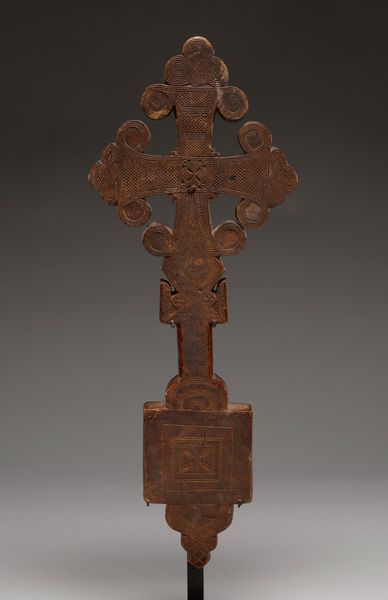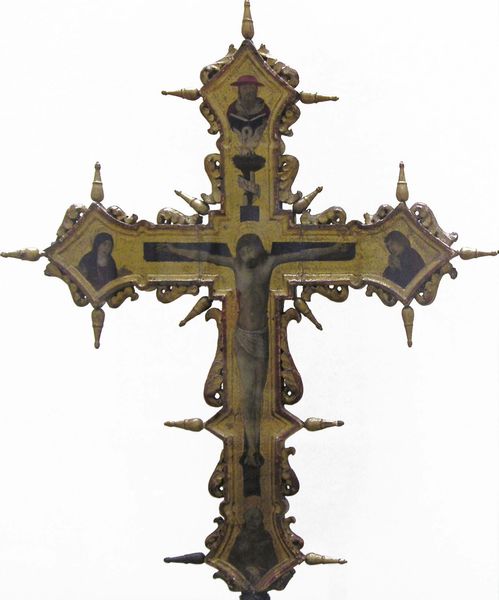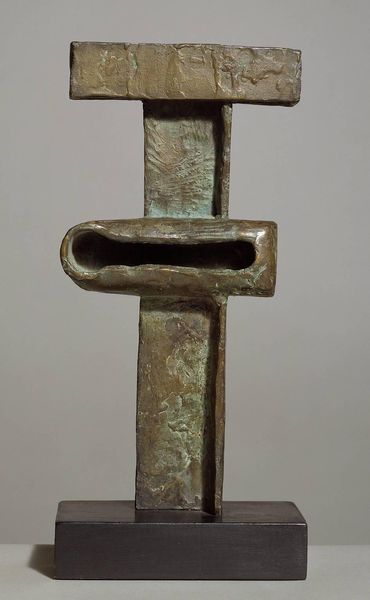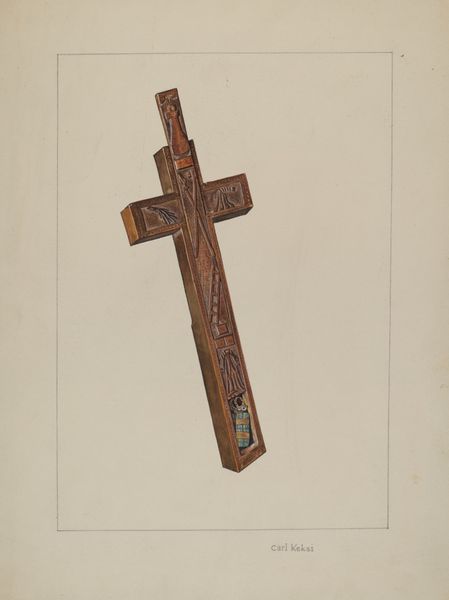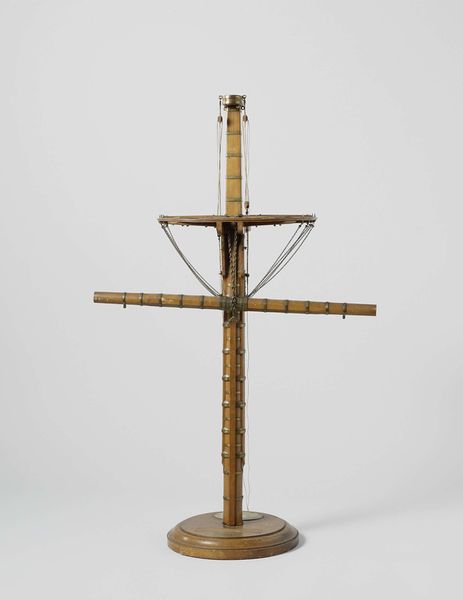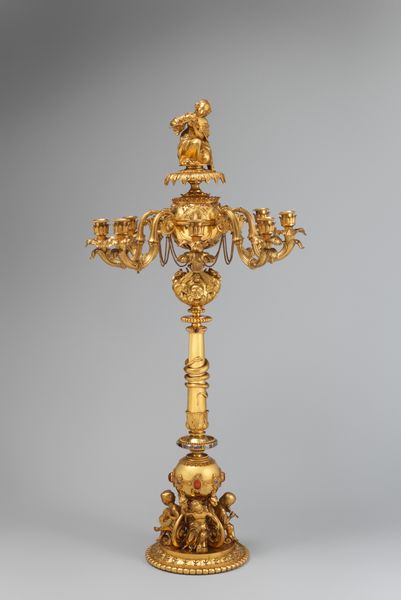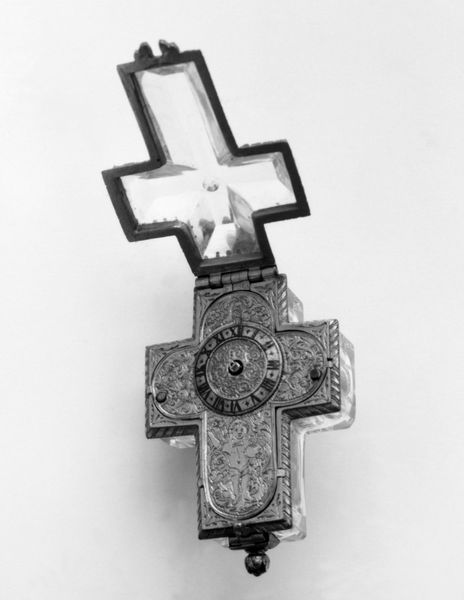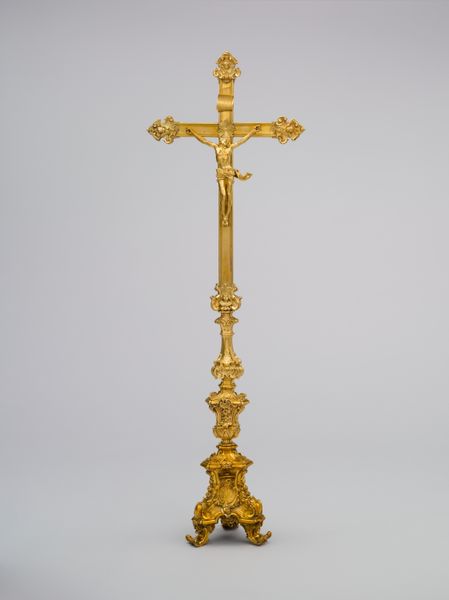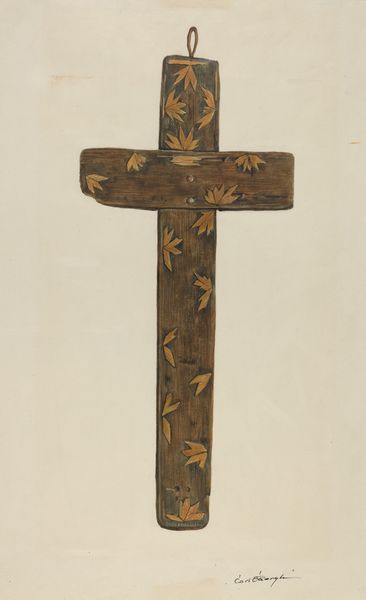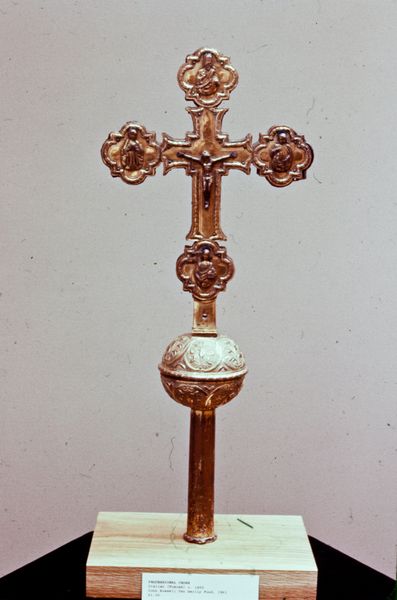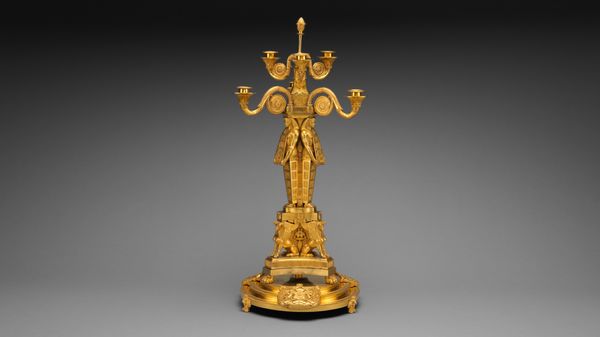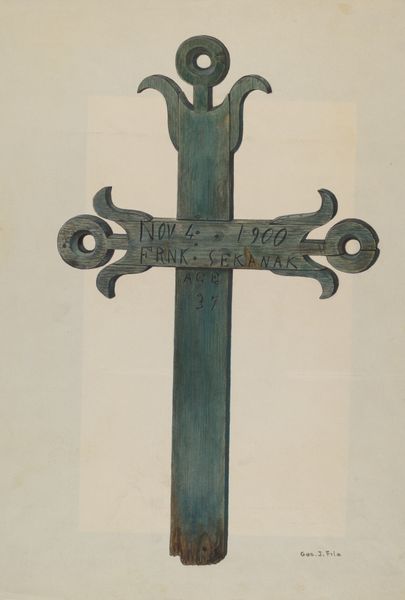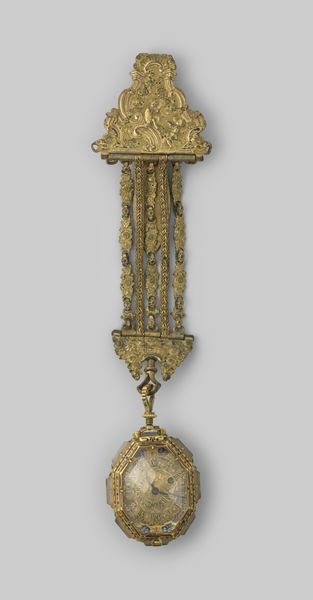
brass, carving, sculpture
#
brass
#
medieval
#
carving
#
sculpture
#
figuration
#
sculpture
Dimensions: 11 1/16 × 4 × 3/4 in. (28.1 × 10.16 × 1.91 cm)
Copyright: Public Domain
This crucifix, made by an artist from Kongo, presents a compelling study in form and meaning. The crucifix, executed in a dark metal, is vertically oriented, emphasizing height and spirituality. The central figure of Christ is rendered with expressive lines that highlight his suffering. The composition is segmented, with additional figures placed at the cross's extremities, creating a structural interplay between Christian iconography and Kongo cultural symbols. This juxtaposition challenges a singular interpretation, inviting us to consider the fusion of different belief systems. The metallic surface and detailed carvings suggest a desire to materialize spiritual concepts, grounding them in a tangible, almost tactile form. Note how the artist balances symmetry with subtle asymmetries, suggesting a dynamic negotiation between tradition and innovation. The piece destabilizes any fixed notion of religious art, functioning as a complex signifier of cultural exchange and adaptation.
Comments
minneapolisinstituteofart about 2 years ago
⋮
The Kingdom of Kongo, in central Africa, officially became Christian in the late 1400s, after the baptism of its king. This opened the door to Catholic missionaries, and the Christian ideas and icons that began circulating through the kingdom soon found their way into Kongo art and religious thought. The crucifix was the foremost of these icons, a potent symbol of the new faith that happened to mirror the indigenous “cosmogram,” a cross-like symbol conveying the Kongo concept of a two-way passage between the world of the living and the world of the dead. These two crucifixes were powerful aids to piety and ritual. One was attached to a wooden cross, now missing, while the other is made entirely of metal. The small figures in postures of prayer on the cross-bar and on the bottom of the cross are Kongo inventions, possibly representing mourners or ancestors.
Join the conversation
Join millions of artists and users on Artera today and experience the ultimate creative platform.
